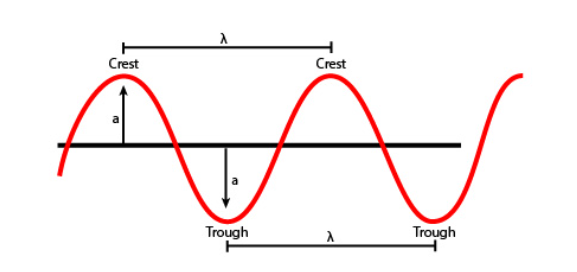1. What is the Frequency Unit Converter?
Definition: This converter transforms frequency values between various units. Frequency measures the number of cycles or events per unit time, typically in hertz (Hz).
Purpose: Useful in physics, electronics, and signal processing for converting units in applications like wave analysis, radio frequencies, and oscillations.
2. How Does the Converter Work?
The converter uses conversion factors relative to an arbitrary base (consistent with provided scaling):
- Input value is converted to the base by dividing by the "From" unit's factor.
- The result is converted to the "To" unit by multiplying by the "To" unit's factor.
Supported units:
- hertz [Hz] (Factor: 1000000000)
- exahertz [EHz] (Factor: 1.0000e-9)
- petahertz [PHz] (Factor: 1.0000e-6)
- terahertz [THz] (Factor: 0.001)
- gigahertz [GHz] (Factor: 1)
- megahertz [MHz] (Factor: 1000)
- kilohertz [kHz] (Factor: 1000000)
- hectohertz [hHz] (Factor: 10000000)
- dekahertz [daHz] (Factor: 100000000)
- decihertz [dHz] (Factor: 10000000000)
- centihertz [cHz] (Factor: 100000000000)
- millihertz [mHz] (Factor: 1000000000000)
- microhertz [µHz] (Factor: 1000000000000000)
- nanohertz [nHz] (Factor: 1000000000000000000)
- picohertz [pHz] (Factor: 1000000000000000000000)
- femtohertz [fHz] (Factor: 999999999999999983222784)
- attohertz [aHz] (Factor: 1000000000000000013287555072)
- cycle/second (Factor: 1000000000)
Steps:
- Enter the value to convert.
- Select the "From" unit (the unit of the input value).
- Select the "To" unit (the desired output unit).
- Submit to perform the conversion.
- Results are formatted to 5 decimal places, with scientific notation for values less than 0.001.
3. Importance of Frequency Conversion
Frequency conversion is critical for:
- Electronics: Tuning circuits and signals.
- Physics: Analyzing waves and vibrations.
- Telecommunications: Managing bandwidth and channels.
4. Using the Converter
Example 1: Convert 1 exahertz to hertz:
- Input: 1
- From Unit: exahertz [EHz] (factor: 1.0E-9)
- To Unit: hertz [Hz] (factor: 1000000000)
- Calculation: \( 1 / 1.0E-9 \times 1000000000 = 1.0E+18 \)
Result: 1.0E+18 hertz
Example 2: Convert 1 gigahertz to megahertz:
- Input: 1
- From Unit: gigahertz [GHz] (factor: 1)
- To Unit: megahertz [MHz] (factor: 1000)
- Calculation: \( 1 / 1 \times 1000 = 1000 \)
Result: 1000 megahertz
5. Frequently Asked Questions (FAQ)
Q: What is frequency?
A: Frequency is the rate at which a periodic event occurs, measured in hertz (Hz), or cycles per second.
Q: Why are there different units for frequency?
A: Prefixes like kilo-, mega-, giga- are used for convenience when dealing with very high or low frequencies.
Q: How are hertz and cycle/second related?
A: They are equivalent; one hertz equals one cycle per second.
Q: Can this converter be used for all frequency scenarios?
A: Yes, it converts units of frequency, applicable to any scenario involving frequency measurements.
Frequency Unit Converter@ - All Rights Reserved 2025
 Home
Home
 Back
Back
